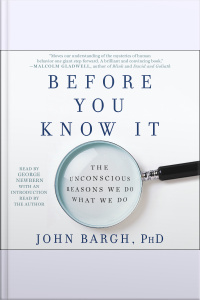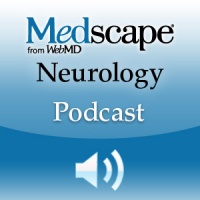Sinopsis
New research and clinical trials yield frequent developments in neuroscience and mental health. ReachMD welcomes an array of leading thinkers who lend their focused expertise to these principles, central to human function and ability.
Episodios
-
Sleep Disorders in Parkinson's Disease Patients
14/01/2009Guest: Matthew A. Menza, MD Host: Leslie P. Lundt, MD Sleep disturbance is extremely common in Parkinson's disease patients; more than two-thirds of community dwelling patients are affected. Dr. Matthew Menza, professor of psychiatry and neurology at Robert Wood Johnson Medical School in New Jersey, joins host Dr. Leslie Lundt to describe the most common sleep disorders in Parkinson's disease patients and how to treat them.
-
Educational Accommodations for the ADHD Patient
19/12/2008Guest: Matthew Tominey Host: Lenard Adler, MD How can educational accommodations be tailored to best fit ADHD patients? What role does an appropriate psychometric assessment of an ADHD patient play in determining the best educational accommodations for that patient? Do all institutions require similar documentation? Dr. Matthew Tominey, director of Disability Support Services at Seton Hall University, discusses how to best address the educational needs of ADHD patients. Dr. Lenard Adler hosts.
-
Pre-Op Bariatric Surgery Psychological Workup
21/11/2008Guest: David Sarwer, PhD Host: Leslie P. Lundt, MD Understanding the psychosocial aspects of treating morbid obesity may help us improve the success rate of these patients postoperatively. Dr. David Sarwer, the director of clinical services at the Center for Weight and Eating Disorders at the University of Pennsylvania School of Medicine, explores the psychological workup of the pre-op bariatric surgery patient with host Dr. Leslie Lundt.
-
The Expanding Role of Minimally Invasive Spinal Surgery
20/11/2008Guest: Paul Holman, MD Host: Mark Nolan Hill, MD At first glance, minimally invasive spine surgery sounds like a contradiction in terms: how could an operation on an area of the body so complex, be navigated successfully through only a few simple incisions? Dr. Paul Holman, a neurosurgeon for the Methodist Neurological Institute at the Methodist Hospital in Houston, joins host Dr. Mark Nolan Hill to explore the intricacies of these procedures, as well as the outcomes: how do the results of minimally invasive spine surgery compare with the more traditional open procedure? Dr. Holman also takes a look ahead, envisioning the technologies and techniques of future minimally invasive spine procedures.
-
Diagnosis and Treatment of Neurosarcoidosis
11/11/2008Host: Leslie P. Lundt, MD Guest: David R. Spiegel, MD Sarcoidosis is a systemic disease most commonly affecting lung, lymph nodes, eyes and skin. Neurosarcoidosis is not an infrequent complication. Host Dr. Leslie Lundt welcomes Dr. David Spiegel, associate professor of clinical psychiatry and behavioral sciences and director of the consultation-liaison service at Eastern Virginia Medical School, to review the diagnosis and treatment of neurosarcoidosis.
-
Improving Physician Training in Addiction Medicine
11/11/2008Guest: Daniel Alford, MD, MPH Host: Mary Leuchars, MD Current research from Boston Medical Center indicates that education in addiction medicine among American medical students and residents is largely inadequate. What is being done to ensure that patients at risk receive optimal medical care from appropriately trained personnel? Joining host Dr. Mary Leuchars is Dr. Daniel Alford, associate professor of medicine and director of Chief Resident Immersion Training in Addiction Medicine section of general internal medicine at Boston University School of Medicine. The topic of discussion is how to expand training in addiction medicine for young medical professionals, assessing the methods developed at Boston Medical Center.
-
Non-Invasive Brain Stimulation to Treat or Cure Disease
10/11/2008Guest: Mitch Tyler Guest: Kurt Kaczmarek, PhD Host: Bruce Bloom, DDS, JD Guest: Yuri Danilov, PhD A number of illnesses are caused by central nervous system damage. Can a new method of non-invasive brain stimulation treat or cure disease? Join host Dr. Bruce Bloom as he discusses non-invasive neuromodulation of the central nervous system with senior scientists Dr. Kurt Kaczmarek and Dr. Yuri Danoliv, and Mitch Tyler, from the Tactile Communication and Neurorehabilitation Laboratory at the University of Wisconsin-Madison.
-
The Future of Tinnitus Research and Treatment
27/05/2008Guest: Richard Salvi, PhD Host: Mark Nolan Hill, MD Dr. Richard Salvi, professor in the department of communicative disorders and sciences, and director of the Center for Hearing Deafness at the State University of New York at Buffalo School of Medicine, outlines potentially fertile areas of research in our pursuit of more effective treatment regimens for tinnitus with host Dr. Mark Nolan Hill. We are still working toward a cure for the condition, but there have been major advances in our treatment of the physiologic and psychologic triggers for the condition. What are the most important investigational issues in the future of tinnitus research?
-
Advances in Treatment for Tinnitus
27/05/2008Guest: Richard Salvi, PhD Host: Mark Nolan Hill, MD Major advances in tinnitus research are making investigators very optimistic about our ability to treat the condition now and in the future. What are the most effective therapeutic measures for tinnitus? What are the specific mechanisms behind our various treatment options? Dr. Richard Salvi, professor in the department of communicative disorders and sciences, and director of the Center for Hearing Deafness at the State University of New York at Buffalo School of Medicine, details our ongoing pursuit of optimal treatment strategies for tinnitus with host Dr. Mark Nolan Hill.
-
Tinnitus: A Disorder of the Ear or the Brain?
27/05/2008Guest: Richard Salvi, PhD Host: Mark Nolan Hill, MD We're learning more about tinnitus at a steady clip, as researchers use newer imaging modalities to help us understand the origin of the condition, and consider lifestyle and behavioral modifications that may limit its effects. Host Dr. Mark Nolan Hill explores the main causes of tinnitus with Dr. Richard Salvi, professor in the department of communicative disorders and sciences, and director of the Center for Hearing Deafness at the State University of New York at Buffalo School of Medicine.
-
Tinnitus: The Everyday Toll on Our Patients
27/05/2008Guest: Richard Salvi, PhD Host: Mark Nolan Hill, MD A neurological condition that can be highly distressing, tinnitus affects as much as fifteen percent of our population, according to some surveys. How should medical professionals counsel their patients on this condition? Are we moving closer to understanding the basic triggers of tinnitus? Dr. Richard Salvi, professor in the department of communicative disorders and sciences, and director of the Center for Hearing Deafness at the State University of New York at Buffalo School of Medicine, joins host Dr. Mark Nolan Hill to discuss the impact of tinnitus on the daily lives of our patients.
-
Where There are No Psychiatrists
05/05/2008Host: Maurice Pickard, MD Guest: Vikram Patel, PhD Dr. Vikram Patel, professor of international mental health and the Wellcome Trust Senior Clinical Research Fellow at the London School of Hygiene and Tropical Medicine, discusses a community model in developing countries that empowers patients with mental illness to use collaborative psychosocial intervention. In India, where there are 3,000 psychiatrists for 1 billion people, technicians can be trained to diagnose and treat depression and anxiety with cost-effective results. Hosted by Dr. Maurice Pickard.
-
Overlooking Global Mental Health
05/05/2008Host: Maurice Pickard, MD Guest: Vikram Patel, PhD People with mental illness face enormous physical and social adversities on a daily basis. In developing countries, this issue becomes all the more prominent due to poor access to effective treatment. Because mental illness often begins to manifest earlier in life, efforts are ongoing across the globe to better integrate mental health with child and adolescent care. Dr. Vikram Patel, professor of international mental health and the Wellcome Trust Senior Clinical Research Fellow at the London School of Hygiene and Tropical Medicine, speaks to the importance of addressing mental illness in developing countries.
-
Early Alzheimer Screening Device: DETECT
30/01/2008Guest: David Wright, MD Host: Larry Kaskel, MD Our guest, Dr. David Wright shares news of a new device currently being tested to screen for mild congnitive impairment, one of the earliest signs of Alzheimer's. Is this a device you should have in your office? Join host Dr. Larry Kaskel to find out.
-
Overview of Movement Disorders
27/09/2007Host: Leslie P. Lundt, MD Guest: Joseph Jankovic, MD More than 40 million people are living with a movement disorder, chronic, often painful and debilitating conditions that negatively impact a person's quality of life. These neurological conditions include Parkinson's disease, tics and Tourette's syndrome, tremor, dystonia, spasticity and ataxia among others. Despite the prevalence, movement disorders still go undiagnosed or misdiagnosed with some patients visiting more than 15 doctors over the course of five years before receiving a correct diagnosis. Host Dr. Leslie Lundt reviews movement disorders with Dr. Joeseph Jankovic.













